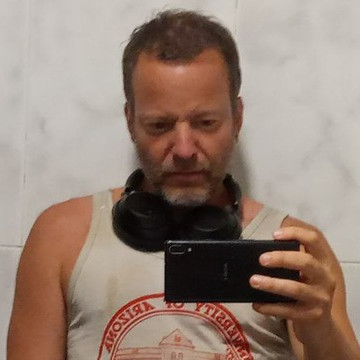About This Project
This project combines research and technology to develop an open-source expert system for mental health monitoring in high-stress jobs. We will survey existing systems, gather input from users and coders, and integrate the best practices into our design. The system will track changes in communication and routine, raising mental health awareness and providing biofeedback. This innovative tool aims to promote overall wellness, productivity, and job satisfaction in demanding work environments.
Ask the Scientists
Join The DiscussionWhat is the context of this research?
Although we've seen advances in mental health care, there remains a noticeable gap in the provision of accessible, efficient, and context-specific support in these high-stress environments. This project, building upon the groundwork laid by an ethnographic studies on expert systems applied to mental health in academia funded by the EU COST action CA19117 - Researcher Mental Health, and action CA19133 - Coercion Reduction in Mental Health Treatments, seeks to address these deficiencies and needs. We are learning to leverage the potential of artificial intelligence in mental health care to provide personalized, data-driven support to individuals facing increased pressure and concerns, working both in software and open hardware development, setting scientific improvement feedback loops.
What is the significance of this project?
Our aim is to design a comprehensive, open-source platform offering a proactive approach to well-being management. Tailored for high-demand scenarios, it will integrate the best features of existing systems and incorporate cutting-edge strategies. Our focus is on capturing and analyzing changes in communication patterns, interactions, routines, and bio-metrics, offering valuable mental health insights. This tool will be not just a support system but also a powerful research instrument. It serves as a collaboration platform for researchers and developers, contributing to continuous evolution and improvement. Its open-source nature will foster innovation and accessibility, while its data capabilities provide unique insights into mental health useful for scientific research and academia.
What are the goals of the project?
Develop an Sustainable Platform: Our primary goal is to create a platform that integrates advanced expert systems to provide proactive mental health support, offering a comprehensive approach to mental health management.
Facilitate Research and Collaboration: By making the platform open-source, we intend to foster collaboration among researchers, developers, and mental health professionals worldwide, serving as an instrument for continuous learning, improvement, and innovation.
Increase Accessibility and Affordability: Our goal is to provide a free, accessible tool for mental health support that can help break down barriers often associated with mental health care. By being open-source, the platform ensures that mental health support becomes more affordable and accessible to all.
Budget
To gain meaningful insights from users and coders, we ensure ethical research practices by compensating participants. This approach ensures quality data for effective system design.
A significant portion of our budget is dedicated to coding, testing and refining the system based on user feedback. This budget allocation ensures that we deliver a functional, user-friendly tool with quality development and annotated source code.
- A secure, robust database is essential for storing and analysing data. This budget item ensures the functionality of our system and protects users.
- Analysing data from our research and system usage is key to refining the system. This budget item supports comprehensive data review for continuous improvement.
- This item ensures that our project reaches its intended audience. We aim to maximise the impact and sustainability of the system through increased visibility and community engagement, essential to ensure future sustainability and improvements.
Endorsed by
 Project Timeline
Project Timeline
Spanning two and a half years, the project begins with six months for a literature review, interviews, and setting up the initial framework. Four months follow for prototype development and further data collection. The subsequent four months will see intensive system testing and user-driven refinement. The final includes additional enhancements and proactive community engagement. Post-launch, we will maintain active involvement to support the platform's evolution based on ongoing user feedback.
Jul 04, 2024
Project Launched
Sep 30, 2024
Interviews and literature review
Dec 31, 2024
Prototype development and testing
Dec 31, 2024
User-driven refinement and participatory research support
Mar 31, 2025
Paper write-up and poster presentation at conferences
Meet the Team
Affiliates
Henning (Enric) Garcia Torrents
Henning (Enric) Garcia Torrents is a professor in training and doctoral researcher at the Medical Anthropology Research Center, Universitat Rovira i Virgili (Spain). Their research focuses on medical anthropology, with an emphasis on mental health, social determinants of health, and non-coercive approaches to care. Henning’s doctoral project, supported by Spanish ministerial highly competitive grant, investigates shared decision-making and dialogic practices to transform mental health systems and reduce coercion, advancing socially engaged academic work.
Henning holds a master’s degree in biological anthropology from the Universitat de Barcelona, where they specialized in psychiatric genetics and neuroimaging. They also completed postgraduate studies in collective mental health and open dialogue. Their research trajectory includes collaborations with institutions such as Stanford Law School, the University of Arizona, and CIBERSAM, contributing to their interdisciplinary expertise across anthropology, neuroscience, and law.
Professionally, Henning teaches research methods and scientific communication, while also conducting ethnographic fieldwork within the EU COST Actions FOSTREN and ReMO, focused on reducing coercive interventions and supporting researcher well-being. They currently lead a taskforce on best digital mental health practices under the ongoing COST Action YouthDMH. They produced contributions such as a Springer book chapter on non-coercive practices and peer-reviewed publications in international journals.
As an active participant in the European research landscape, Henning engages with networks like the Aurora European University Alliance and multiple other initiatives. Their work reflects a strong commitment to fostering collaborative, rights-based approaches to mental health and building a health promoting culture. By bridging practice, policy, and research, Henning aims to promote well-being and meaningful reform both within and beyond academia.
Press and Media
This line of research is related to published papers such as: Puig, Sergio "Social Capital in the Arbitration Market", 25 European Journal of International Law (2014, Forthcoming) and Puig, Sergio and Torrents, Enric G. "The Case for Linking World Law Data", 2 Journal of Open Access to Law (2014, Forthcoming). The initiative has been featured in the Open Science Data Cloud, a network providing parallel computing capabilities to research endeavors, and the Open Knowledge Foundation, which is supporting our efforts by advocating the release of judicial and legislative information in open data standards worldwide.Additional Information
Contribution to Mental Health Discourse: This project doesn't just aim to provide a tool for individuals; it also seeks to contribute to the wider discourse on mental health, particularly in high-demand sectors. The data collected through our platform will be anonymized and analyzed to gain unique insights into mental health patterns and challenges among users. These insights can help inform mental health policies, research, and interventions, providing a clearer picture of the realities faced by individuals in high-stress environments. It is our belief that our project will not only address immediate mental health concerns but also contribute to broader societal understanding and changes.
User Engagement: User engagement is a key focus for our platform. We believe that an interactive, user-friendly platform can significantly improve the overall experience and effectiveness of mental health support tools. Therefore, the platform will feature intuitive navigation and interaction design, ensuring it can be easily used by individuals regardless of their tech proficiency. Moreover, we will incorporate mechanisms for feedback and suggestions from users, which will play a crucial role in the iterative refinement of the platform. This approach ensures that we are always meeting the needs of our users and responding to their experiences, making our platform not just a tool, but a collaborative project between developers, researchers, and users. User Data Ownership, Privacy, and Security: Given the significant issues in the mental health software landscape, our platform is fundamentally committed to data privacy, ownership, and security. Research from the Mozilla Foundation has revealed deeply concerning practices within the industry, including vague privacy policies, data sharing with third parties, collection of sensitive information like chat transcripts, and laughably weak security measures (Mozilla Foundation, 2023).
In stark contrast, we're adopting a privacy-first and user-centric design approach for our software. We will put users in full control of their data, empowering them to grant or withdraw permissions for third-party research access at any time with a clear and simple interface. Security isn't an afterthought in our software development process. We will implement end-to-end encryption, enforce robust password policies, provide regular security updates, and devise a systematic approach to managing potential security vulnerabilities. Transparency is another cornerstone of our platform. Our users will be clearly informed about how their data is used and any changes to our data policies, unlike some apps with opaque practices. Particular attention will be paid to protecting vulnerable users, such as young people who are often targeted by these apps. Their data will not be used for targeted advertising or marketing.
We are embarking on this project with the goal of creating a secure, transparent, and user-friendly mental health software platform with an open hardware scientific and clinical research based ecosystem. Users can confidently engage with our power tools, knowing their data is secure, private, and entirely under their control. By confronting these industry issues head-on, we are striving to set a new standard in mental health software.
References:
Mozilla Foundation. (2023). Privacy not included: Mental health apps. Retrieved from https://foundation.mozilla.org/en/privacynotincluded/categories/mental-health-apps/
Project Backers
- 1Backers
- 1%Funded
- $10Total Donations
- $10.00Average Donation





